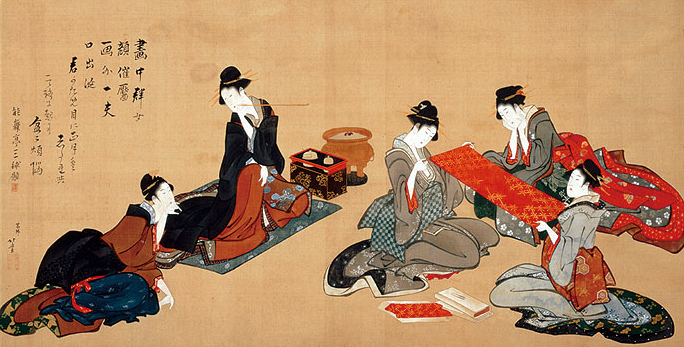Table of Contents
Tanka, the oldest Japanese poetry’s definition and examples
Although haiku is famous as traditional Japanese poetry throughout the world, Tanka that has more 1000 years history than haiku. Tanka has been closely attached to the lives of people and loved by them still today beyond the years.
What is and how to write Tanka Poetry?
Tanka is a short lyric poem with syllables of five, seven, five, seven and seven. It is longer than haiku by the last two syllables.
Related Post
Originally it was one of the kinds of Waka poetry. And Tanka had already been completed as a form of Japanese poetry since the middle of the 7th century. “Manyoshuu” edited by Otomo no Yakamochi around 770-780 is famous as the oldest song collection in Japan and as the origin of Tanka. And it contains about 4,500 poems by the Emperors, famous poets, and even common people.
In the Heian Period, “Kokin wakashu” which is the first original Japanese imperial writings collection, “Shin-Kokin wakashu” was edited in the Kamakura period, the culture of Tanka reached the peak.
All nobleman should understand Tanka poetry, but in the Middle Ages, they lost their power and haiku became popular. There aren’t so many people compose the poems. However, in the Meiji Period Tanka saw the light of the sun. In addition, the poet s such as Masaoka Shiki (also the poet of haiku) and Yosano Akiko reconstructed the traditional poetry. Still today it keeps strong popularity.
How to write Tanka poems
The theme of Tanka can be anything from love poems to depictions of everyday life, social issues, children’s growth, stories and, fantasies. It is very free poetry, the only rule is to make it in the form of five phrases and thirty sounds.
Also, there is no rule that Tanka must enter season words like haiku.
It is also one of the characteristics of Tanka that skillfully uses techniques such as Makura-kotoba (stock epithet) and Kake-kotoba (paronomasia) in order to give emotional feelings and deep emotions of the author within a limited number of letters.
Famous Tanka poems in Japan
1. Emperor Tenji (626-672)
<Japanese>
秋の田の かりほの庵の 苫をあらみ 我が衣手は 露にぬれつつ
Aki no ta no/ Kariho no io no/ Toma wo arami/ Waga Koromode wa/ Tsuyu ni nuretsusu
<English>
In the autumn rice field
Sheltering at the temporary harvest-hut
Coarse the rush-mat roof
My sleeves get wet
With the raindrops
2. Emperor Jito (645-703)
<Japanese>
春過ぎて 夏来にけらし 白妙の 衣ほすてふ 天のかぐ山
Haru sugite/ Natsu kinikerashi/ Shirotae no/ Koromo hosucho/ Ama no kaguyama
<English>
The spring has passed
And the summer would come.
For the silk-white robes,
They say it gets dry
On the Mount Ama no kagu.
3. Ono no Komachi (825-900)
<Japanese>
花の色は うつりにけりな いたづらに わが身よにふる ながめせしまに
Hana no iro wa/ Utsurini kerina/ Itazura ni/ Wagami yoni furu/ Nagame seshi ma ni
<English>
Color of the cherry blossoms
Has already faded away
While spending in vain
My life passes
As I had watched the long rains fall.
4. Fujiwara Michinaga (966-1028)
<Japanese>
この世をば わが世とぞ思う望月の 欠けたることもなしと思えば
Konoyo woba/ Wagayo tozo omou/ Mochizuki no/ Kaketaru koto mo/ Nashi to omoe ba
<English>
Whole this world
Is my world, I think.
Because the full moon
Don’t wane
As well as me
5. Fujiwara Toshinari (1114-1204)
恋せずは 人は心も なからまし もののあはれも これよりぞ知る
Koi sezu ha/ Hito ha Kokoro mo/ Nakara mashi/ Mono no aware mo/ Kore yori zo shiru
If you don’t love someone,
Or you don’t
Have a heart.
Also the pathos
Is understand by that
Related Post
8 missing a loved one lyrics Tanka poems by ancient Japanese poets
6. Masaoka Shiki (1867-1902)
いちはつの 花咲きいでて 我目には 今年ばかりの 春行かんとす
Ichihatsu no/ Hana saki idete/ Waga me ni wa/ Kotoshi bakari no/ Haru yukan to su
Ichihatsu flower
Is blossoming.
This spring may be
The last one for me to see
Related Post
Japanese death poems (haiku and Tanka) by famous people
7. Yosano Akiko (1878-1942)
その子二十 櫛にながるる 黒髪の おごりの春の うつくしきかな
Sono ko hatachi/ Kushi ni nagaruru/ Kuro kami no/ Ogori no haru no/ Utsukushiki kana
That girl, now twenty,
As seen in the black hair
That flows smoothly through her comb
She is in the arrogant spring
And so beautiful
Related Post
Related posts:
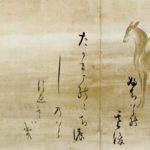 Japanese literatures and poetry
Japanese literatures and poetry
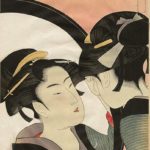 Best 10 love lyrics of Tanka poetry by famous Japanese poets
Best 10 love lyrics of Tanka poetry by famous Japanese poets
 Old Japanese love lyrics Tanka poems from Man’yoshu
Old Japanese love lyrics Tanka poems from Man’yoshu
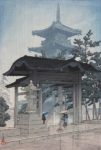 Best short Tanka poems about death by ancient Japanese poets
Best short Tanka poems about death by ancient Japanese poets
 Japanese death poems (haiku and Tanka) by famous people
Japanese death poems (haiku and Tanka) by famous people
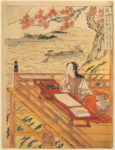 Differences between Haiku and Tanka poetry
Differences between Haiku and Tanka poetry

